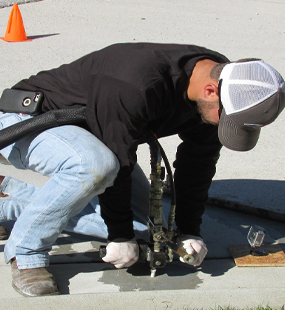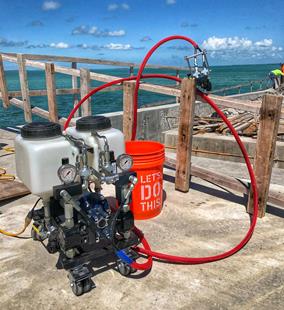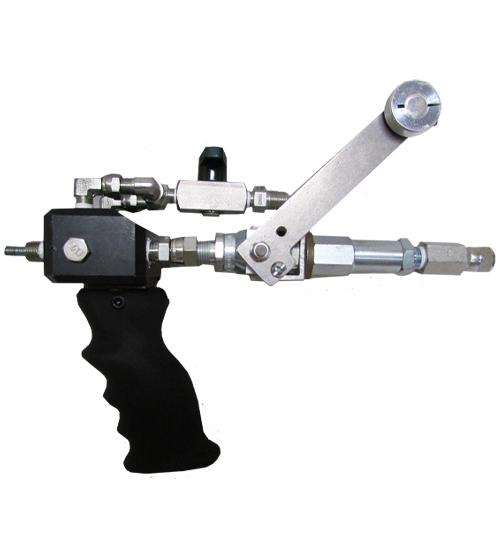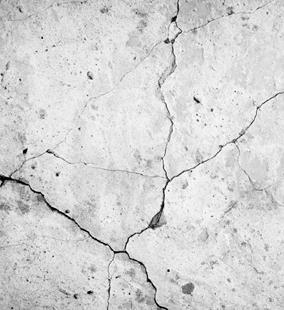
- Home
-
Solutions
-
Leak Seal
Seal leaks in concrete or masonry with crack injection and curtain grouting of our Prime Flex polyurethanes and AR acrylate resins. Prime Resins offers superior solutions for stopping leaks in every type of environment.
Read More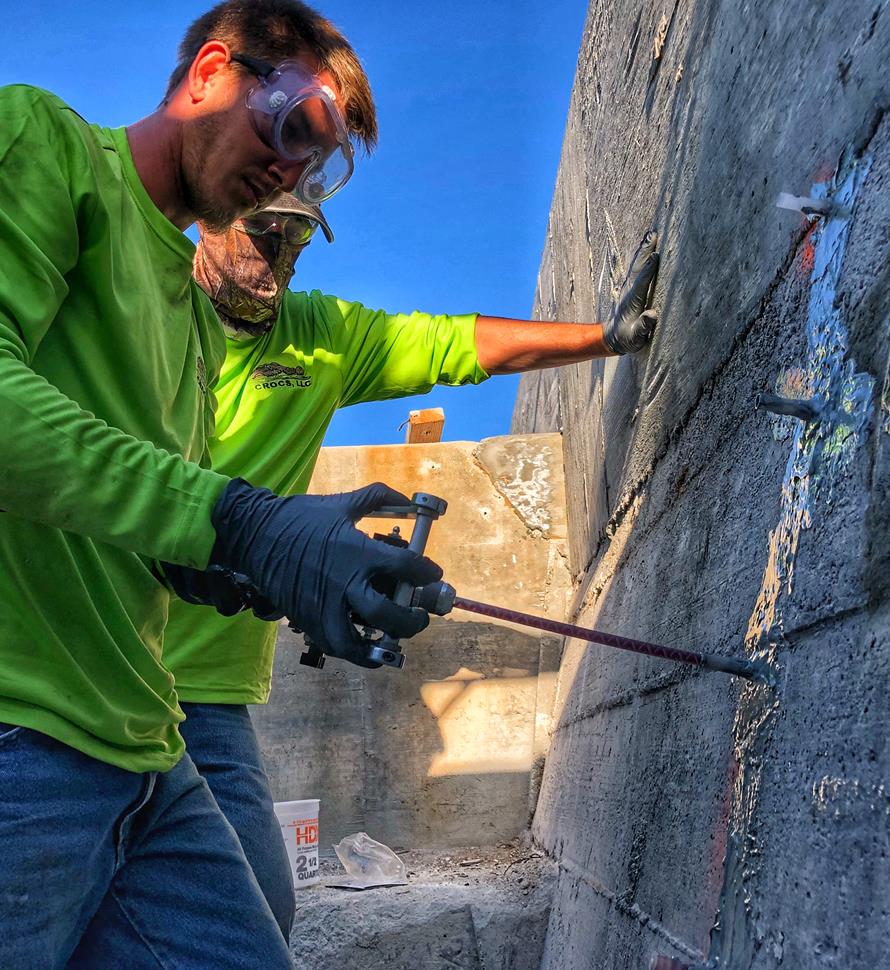
-
Soil Stabilization
Sound concrete relies on a sound substrate. Stabilize soils and fill voids with our polyurethane and acrylate foams and gels. We make chemical grouts for permeation and compaction grouting in wet and dry conditions.
Read More
-
Slab Lifting & Stabilization
Slab lifting and slab stabilization with polyurethane foams offers many advantages over traditional mudjacking. Only Precision Lift is engineered to tackle underlying issues and slab lifting with precise, dependable results.
Read More
-
Floor Repair & Joint Protection
Spalled concrete is concrete that is chipped, cracked and deteriorating. This often happens at a joint.
Read More
-
Seawall Repair
You can repair a seawall or bulkhead with Prime Resins chemical grouts: fill voids, stabilize loose soil and seal leaks at a fraction of the cost of wall replacement.
Read More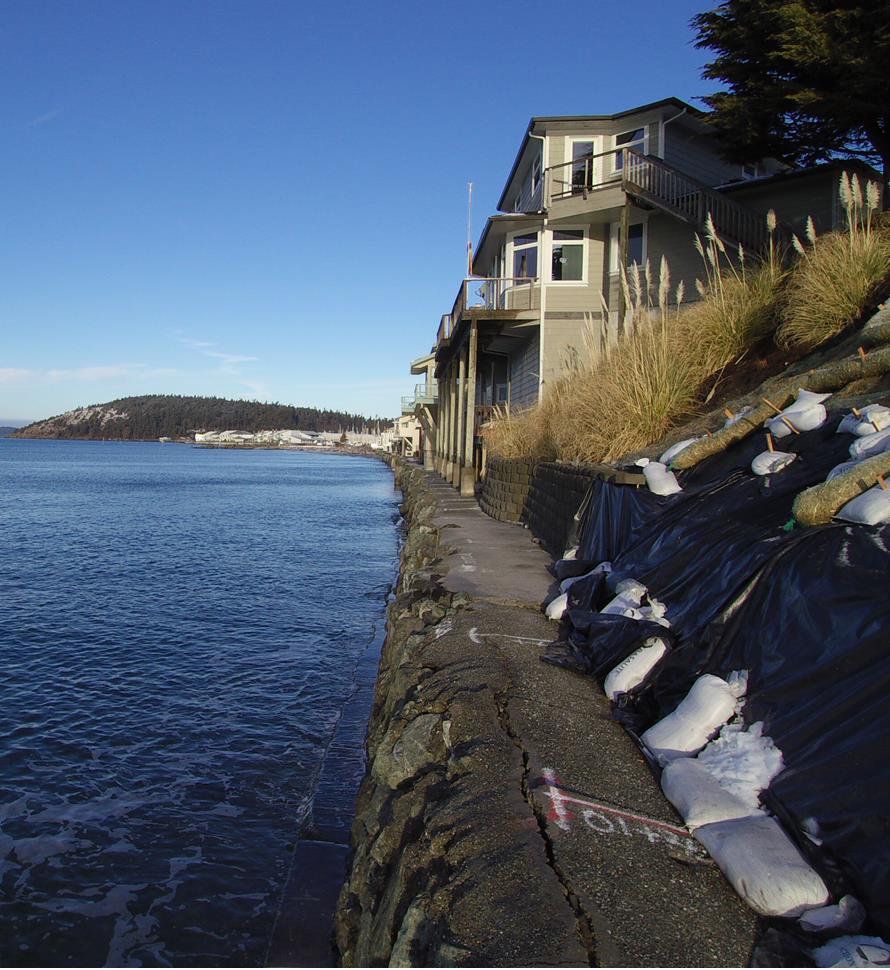
-
Structural Repair / Bonding & Anchoring
The need for crack repair in concrete structures can be caused by many different factors. Damage can occur to the concrete in situations where direct impact puts stress on one area of the structure.
Read More
-
Highway & Bridge
The geotechnical needs of DOTs and other agencies responsible for roads and bridges are vast. Issues include: Culvert repair Soil stabilization Void filling Concrete slab lifting Sinkhole remediation Slope control Slough control in tunneling
Read More
-
Waterproofing & Secondary Containment
Protecting concrete usually means shielding it from the elements of nature or from harsh manmade chemicals. But it’s not just concrete that needs such protection. Corrugated metal pipe, steel surfaces, material hoppers, rail cars and masonry all can come in contact with corrosive or abrasive materials or harsh conditions.
Read More
-
Leak Seal
-
Products
-
Leak Repair
- AR 800
- Conduit Seal Kit
- PR10L ACLM
- Soakum Oakum Kit
- Prime Flex 900 XLV
- Prime Flex 910
- Prime Flex 920
- Prime Flex 940
- Prime Flex 985 LX10
- Prime Flex 985 LX20
- Prime Flex 985 5.0
- Prime Flex 985 5.0 Fast
- Prime Flex Hydro Gel™ SX
- Prime Plug 1, 2 & 3
- PrimeCem MSM
- PrimeCem CAM
- PR10 ACLM (granular)
- Prime Flex Hydro Gel™ EXP
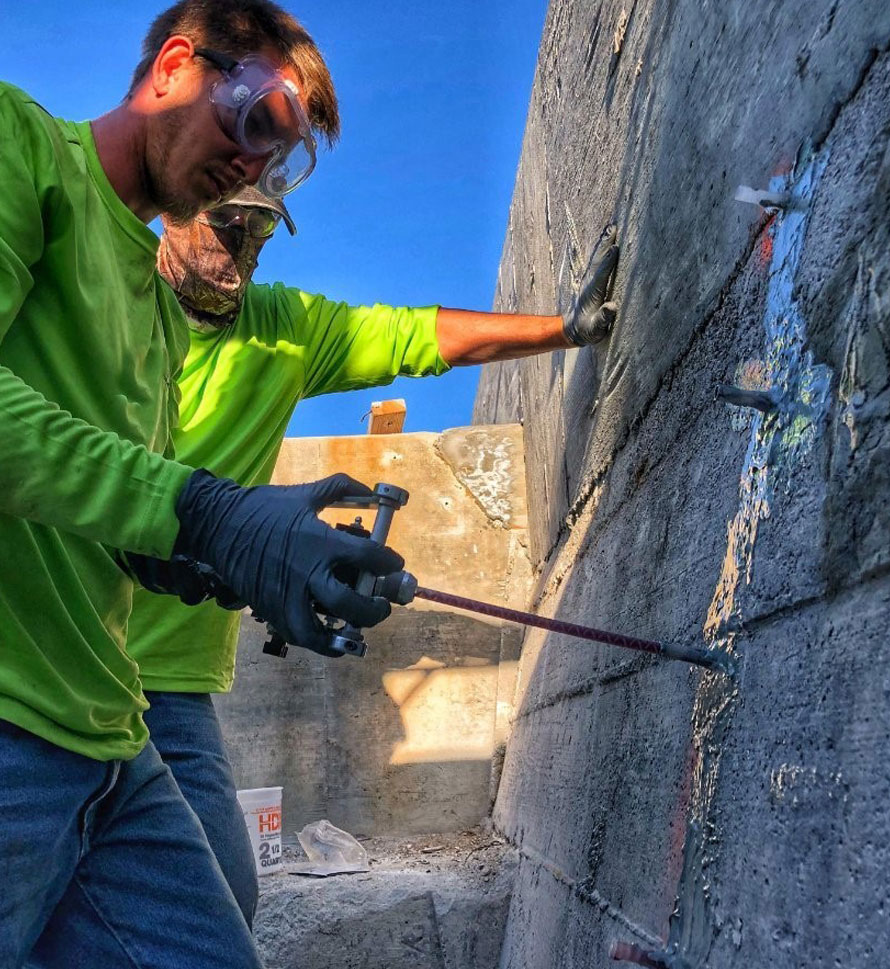
-
Soil Improvement
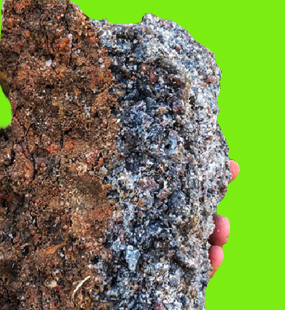
- Soil Stabilization
- Slab Lifting
- Structural Repair / Bonding & Anchoring
- Pumps
- Dispense Guns & Applicators
-
Turnkey Trailer Rig
Are you ready to hit the ground running doing concrete leveling with polyurethane foam? Prime Resins offers the industry’s best suite of products for lifting concrete as a turnkey, fully equipped trailer rig.
Read More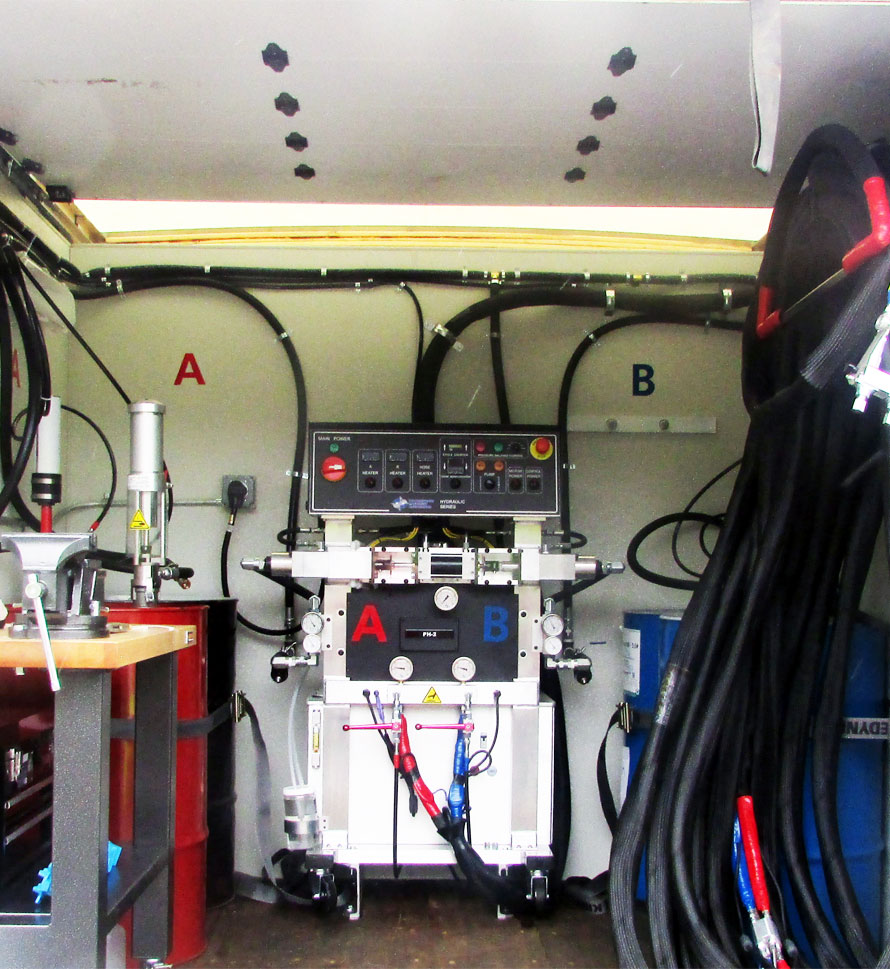
-
Accessories (General)
- 3/4" expendable drive point
- 3/8" and 3/4" soil probes
- Cartridge / Port Connectors and Mixers
- Conduit Seal Kit
- Eco Flush
- F Valve
- Flush Wand
- Grout Needle Kit
- High Pressure Control Valve
- High Pressure Mechanical Ports
- Kick Fast
- Low Pressure Plastic Ports
- PR11 TEA (used w/ PR10 ACLM)
- PR12 APSF catalyst (used w/ PR10 ACLM)
- PR17 LYTX
- Prime Kat
- Prime Plug
- Prime Solvent CGC
- Oakum
- Soil pipe jack
- Stainless Steel Grout Needle & Kit
- StainShield
- Wall Stinger Nozzle
-
Soil Grouting Accessories
- Pipe Coupler
- Pipe Coupler Ferrule
- Buttonhead Coupler - Straight
- Buttonhead Fittings
- SG 3/4" Expendable Drive Tip
- SG 3/4 Rod - 39" Base
- SG 3/4 Rod - 39" Connector
- SG 3/4 Rod - 19.5" Base
- SG 3/4 Rod - 19.5" Connector
- SG 3/4 Fitting - Pipe to Buttonhead
- SG 3/4 Fitting - Buttonhead Fitting
- IL 1/2" Drive Point
- IL 1/2" rod - 39" base
- IL 1/2" rod - 39" connector
- IL 1/2" Fitting Buttonhead
- SG 3/4" Fitting - Buttonhead Coupler
- SG 3/4" Slotted Drive Tip
- SG 3/4 Drive Head
- Modified Pipe Jack Soil Grouting
- SG 3/4 Fitting - Buttonhead Coupler
- Pagani DPM30 Penetrometer
- IL 1/2" Fitting - Buttonhead to Connector Rod
- IL 1/2" Rod to Rod Coupler Fitting
- High Pressure Flow Control Valve
- Buttonhead Coupler - 90°
- Buttonhead Clamp Kit
- DPM30 Penetrometers
- JackJaw Soil Probe Extractor
- Floor & Joint Repair
- Waterproofing & Secondary Containment
-
Leak Repair
- News
- Downloads
-
Tools
-
Case Studies
Prime Resins takes pride in its ability to find the right solutions to the problems facing our customers. Here are some examples of customers’ successful jobs:
Read More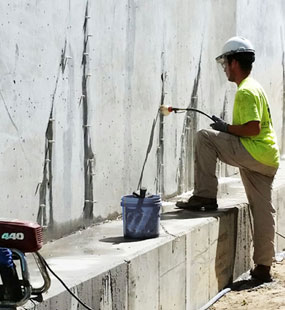
-
Prime Practices
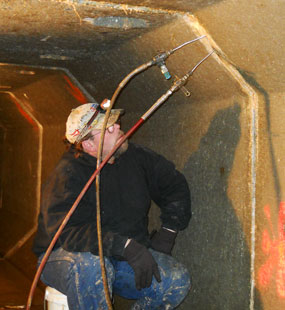
-
Videos

-
Estimating Tools & Info.

-
Why us?
The superior quality of products at a fair price, our consultative approach, and our unparalleled technical support set Prime Resins apart. Learn more about the Prime difference.
Read More
-
Product Types & Typical Uses
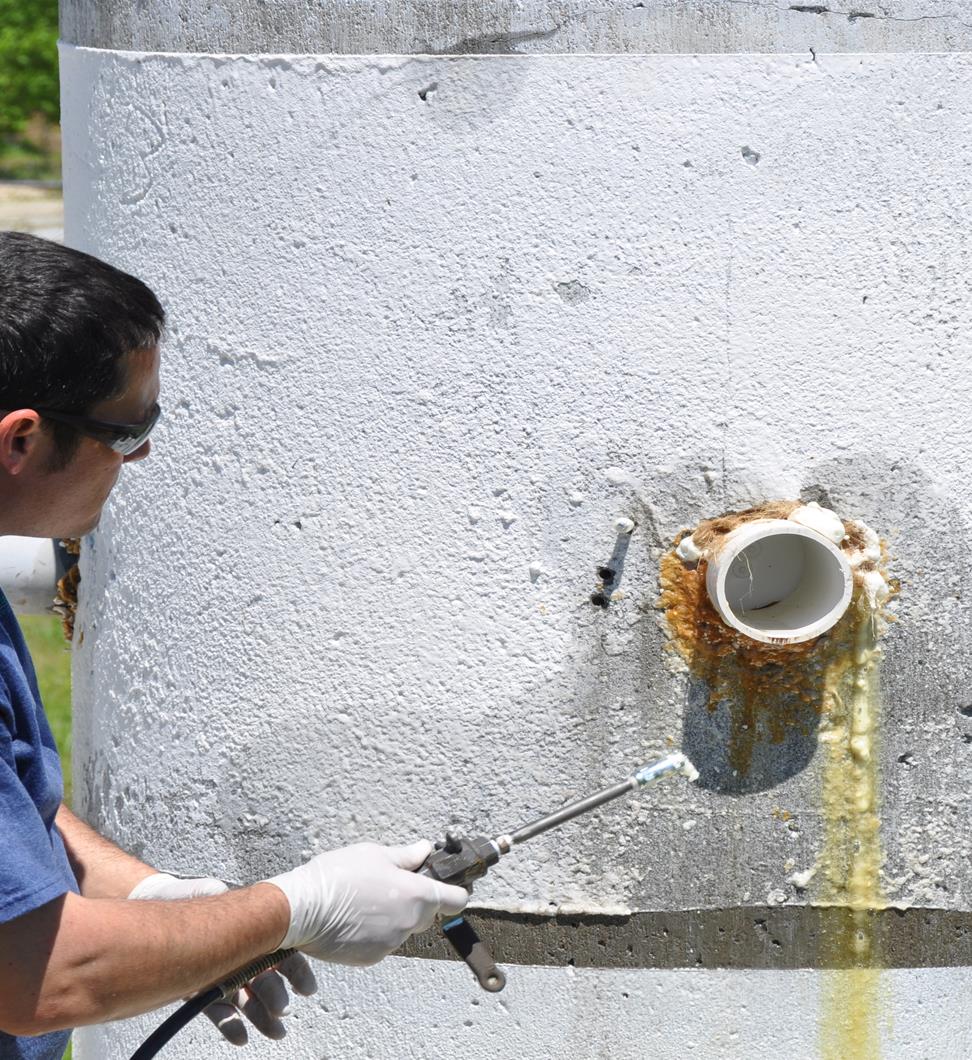
-
Looking for a contractor?
-
Certifications
-
Podcasts
-
Case Studies
- Contact
Leak Repair
Description
PrimeCem MSM (Microsilica Mortar) is a blend of Portland cement, graded silica sand, fibers and silica fume. The mortar may be hand or spray applied. A nominal thickness of 1/4” up to 2”. Thicker applications can be achieved by applying in successive lifts. Uses include repairing concrete walls, ceilings, lining brick or concrete manholes and lift stations and horizontal pipe repair. Microsilica Mortar provides an extremely dense matrix and will accept coatings at earlier ages than typical Portland cement repair products. This product contains a migrating corrosion inhibitor.
Surface Preparation
Remove all loose concrete, brick or mortar from affected area by mechanical means. Surfaces shall be free of paints, oils, dirt, dust, curing compounds, sealers, form release agents or any material that would prevent mortar from coming into contact with the open pores of the concrete. Create a minimum surface profile for the system specified in accordance with the methods described in ICRI No. 03732 to achieve profile CSP-3 to CSP-9. Shot blasting, sandblasting, chipping and high pressure water blasting are all excellent surface preparation methods. Dampen area to achieve a saturated, surface dry condition (SSD).
Leaving no puddles.
Mixing & Application
NOTE: The material will flash set if contaminated with calcium aluminate cement Make sure all equipment for mixing, pumping, etc. are free from any calcium aluminate cement or products that contain calcium aluminate cement. Begin by adding 1 gallon clean water to mixing vessel and then add 1 bag (50#) Microsilica Mortar. Adjust water as needed (up to 1.4 gallons) to provide proper consistency for placing by hand or pump sprayer. Apply in successive lifts to desired thickness. Use brush, float or trowel to achieve desired texture.
Curing
Damp curing or use of a curing compound, that complies with ASTM C-309, may be necessary to prevent rapid drying of mortar. Curing compounds may need to be removed prior to coating. Replace manhole cover as soon as troweling is finished.
Technical Information
Typical Engineering Data The following are typical values obtained under laboratory conditions. Expect reasonable variation under field conditions.




